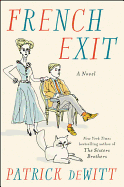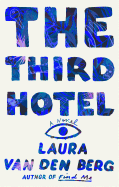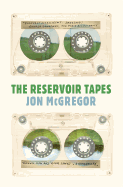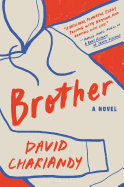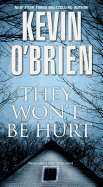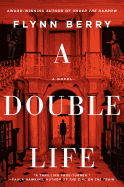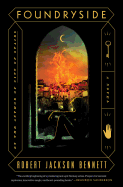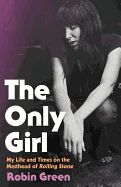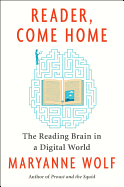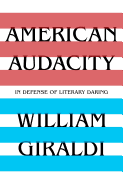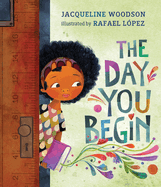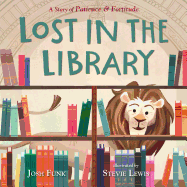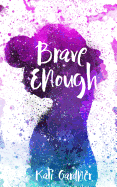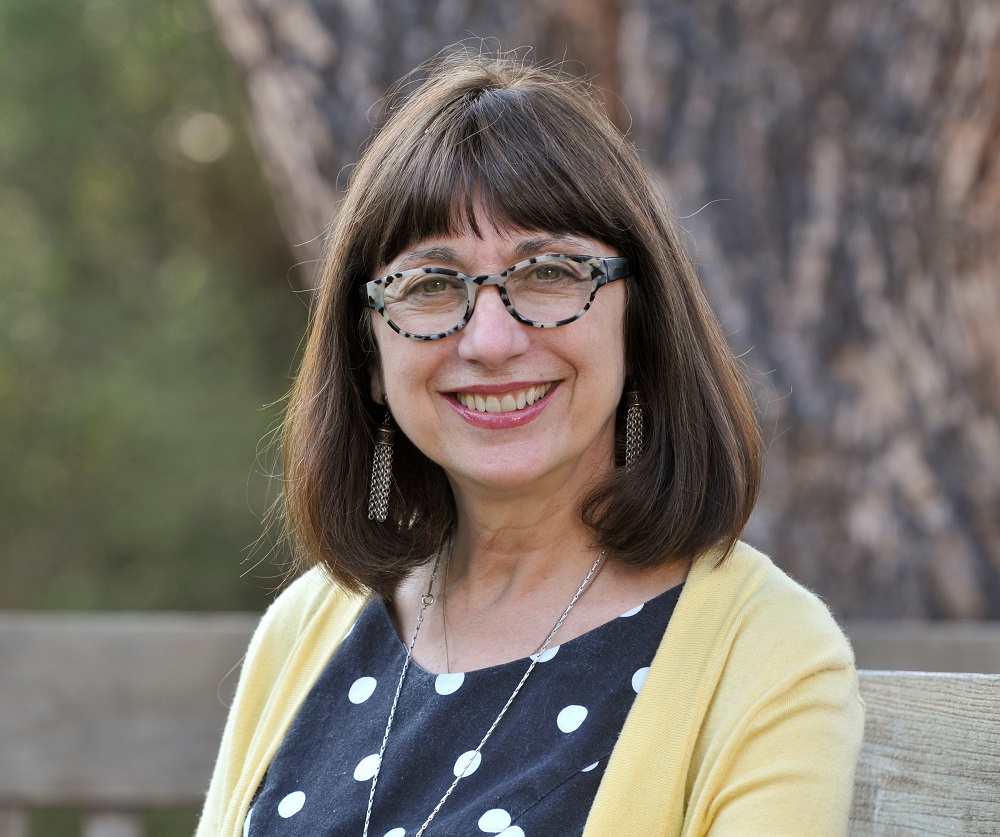 |
| photo: Rod Searcey |
Cognitive neuroscientist, professor and dyslexia researcher Maryanne Wolf (Proust and the Squid
) looks to the future of literacy in Reader, Come Home: The Reading Brain in the Digital World
(Harper, $24.99). Through insightful, inspiring letters, Wolf invites us to remember--amid the glow of iPads and e-readers--the fire lit by reading.
You chose the epistolary form for Reader, Come Home, writing short to medium-length letters to your readers. Did this approach feel like an acquiescence to modern attention spans? Or liberating? Or both?
How interesting that you connect the briefer form of the letter to my concern for the attention span of the reader! But, in reality, it had nothing to do with my worries about the reader's limits, but about my appreciation for their very different thoughts, bases of knowledge and ineluctable differences from my perspective on the potential for negative effects from digital devices. I wanted the reader to know we can both learn from one another. The letter gives author and reader the opportunity for a dialogue. If you remember, at the end of the first letter, I quote Thomas Aquinas (whom I have never respected more) as saying, "Iron sharpens iron." So will it be, I hope, for the reader of my letters.
You cite a vast array of writers, thinkers and readers. In the span of a page you might toggle between Emily Dickinson and David Eagleman--a titan of literature and a neuroscience rock star. How did you choose which voices to include?
My very dear friend, Heidi Bally from Switzerland, upon finishing my book, looked up, smiled and said that I always find a way of sharing my "friends" with the readers of my book.... Narrative theologian Fr. John Dunne, novelists Virginia Woolf, Marilynne Robinson and Toni Morrison, Parisian philosopher Bernard Stiegler and, perhaps most important to me in the last years, the extraordinary pastor of Nazi resistance Dietrich Bonhoeffer, each played a pivotal role in my writing of that last letter. I had to laugh. She was correct. I want all my readers to know these friends, only three of whom I ever met in life, but all of whom I consider friends of a lifetime.
Perhaps that is the real story of this book: letters of introduction or re-introduction to some of the people whom I have come to think embody the best of human thought across multiple disciplines and who individually and collectively contribute to our world's aspiration for the good. Tolkien wrote that his work was meant "to rekindle hearts in a world that's grown chill." My "friends" each do that.
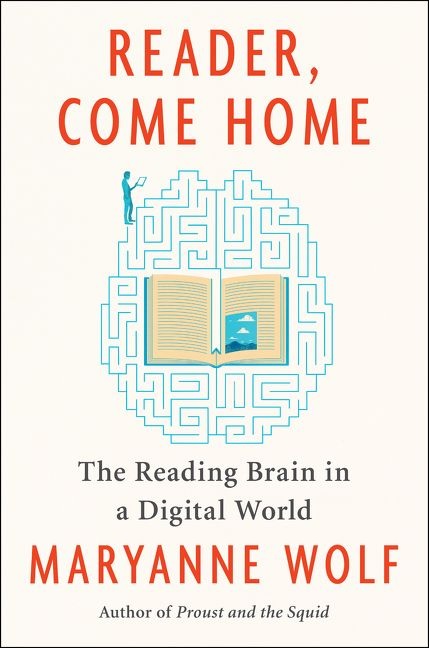 You quote Toni Morrison: "We die. That may be the meaning of life. But we do language. That may be the measure of our lives." You also cite Aristotle on the contemplative life, and Warren Buffet and Bill Gates on the value of time. Where do you find the most value, personally? Where do you see the value of "doing language," or of taking action, intersecting or diverging?
You quote Toni Morrison: "We die. That may be the meaning of life. But we do language. That may be the measure of our lives." You also cite Aristotle on the contemplative life, and Warren Buffet and Bill Gates on the value of time. Where do you find the most value, personally? Where do you see the value of "doing language," or of taking action, intersecting or diverging?
This may be your most difficult and, perhaps, your most important question to me. I never thought that my work on the neuroscience of reading would lead me to the conviction that knowledge about the retreat of critical analysis and empathy in deep reading would have radical implications for a democratic society. But that is now what I believe. We need only begin by looking at ourselves. How many of us have begun to sacrifice critical analysis (and other time-demanding capacities) for being quickly informed because of the glut of information we consume? How many of us trade understanding another perspective to gain a little time to make decisions ultimately less informed? How many Americans retreat to the simplest, most familiar, silo-like sources of information that require less thought, less perspective-taking, less exposure to alternative viewpoints?
As readers, as parents and as citizens, we must ask collectively whether we have already begun the insidious skipping of the time and attention needed to analyze the truth and implications of what we read, leading everyone to be more susceptible to fake everything, fear induction and meaningless promises we know to be false.
There are many factors that contribute to the atrophy of critical analysis and empathy, the prerequisites of a good society. Indeed, we do not need the neuroscience of reading to understand the intellectual, social-emotional and ethical risks of short-circuiting thought and empathy--whether this results from the truncation of complexity through Twitter and/or the banishing of critical analysis through demagoguery in whatever its newest forms. But knowing that this is happening is my responsibility as a researcher, mother and citizen to resist through my work's emphasis on critical thought, empathy and, yes, wisdom. It is not about politics, it is about the preservation of the values of a good society.
In an interview about what he as a scholar should do in these difficult and divisive times, the 87-year-old philosopher Charles Taylor responded, "I shall jump into the fray." So, also, must we all, regardless of political parties or loyalties. We must think for ourselves, and we must feel for other human beings. That is my commitment to the most important uses of written language that I work to preserve in our society, from the youngest to the eldest. --
Katie Weed, freelance writer and reviewer
Maryanne Wolf: How We Read
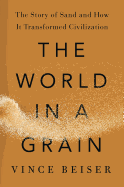 As Vince Beiser observes in The World in a Grain: The Story of Sand and How It Transformed Civilization (Riverhead), "sand lies deep in our cultural consciousness. It suffuses our language. We draw lines in it, build castles in it, hide our heads in it.... Sand is both minuscule and infinite, a means of measurement and a substance beyond measuring."
As Vince Beiser observes in The World in a Grain: The Story of Sand and How It Transformed Civilization (Riverhead), "sand lies deep in our cultural consciousness. It suffuses our language. We draw lines in it, build castles in it, hide our heads in it.... Sand is both minuscule and infinite, a means of measurement and a substance beyond measuring."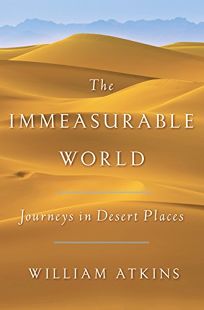 "The desert is refashioning itself. Nod off in an exposed place and you will wake to find you have been partnered by a buttress of sand, laid down snug beside you," William Atkins writes in The Immeasurable World: Journeys in Desert Places (Doubleday), noting: "In any torch-beam, even on the quietest night, airborne dust is visible. Subtly the desert is in motion."
"The desert is refashioning itself. Nod off in an exposed place and you will wake to find you have been partnered by a buttress of sand, laid down snug beside you," William Atkins writes in The Immeasurable World: Journeys in Desert Places (Doubleday), noting: "In any torch-beam, even on the quietest night, airborne dust is visible. Subtly the desert is in motion."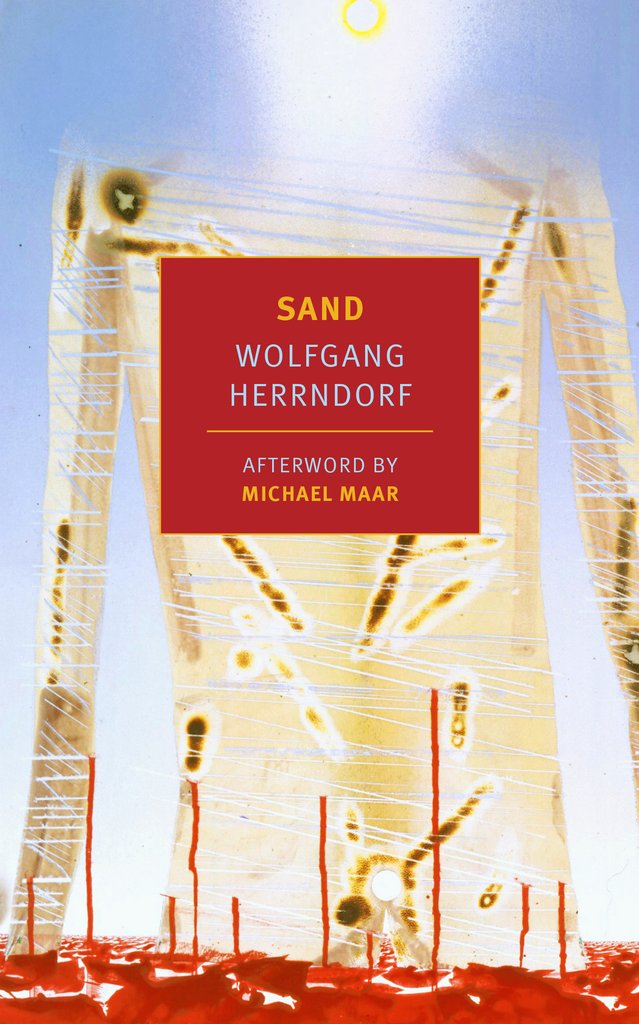 Wolfgang Herrndorf's Sand, translated by Tim Mohr (NYRB Classics), is a mind-bending suspense novel set in North Africa: "Because the victims may all have been a bunch of drugged up hippies who ran an anti-imperialist pot business in the desert--but as soon as things got serious, the only thing that mattered to the First World was citizenship."
Wolfgang Herrndorf's Sand, translated by Tim Mohr (NYRB Classics), is a mind-bending suspense novel set in North Africa: "Because the victims may all have been a bunch of drugged up hippies who ran an anti-imperialist pot business in the desert--but as soon as things got serious, the only thing that mattered to the First World was citizenship."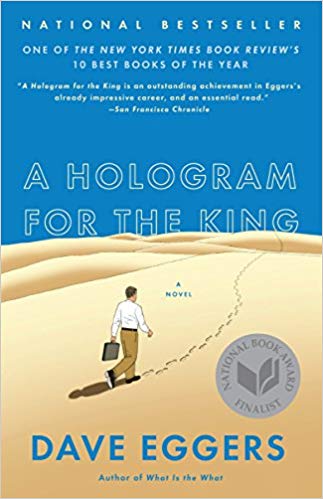 In the Saudi Arabian setting for A Hologram for the King (Vintage) by Dave Eggers, "the desert wind was strong, and the dust came up over the street like fog. Still, two men were sweeping the road. Yousef pointed and laughed.--This is where the money's going. They're sweeping the sand in a desert."
In the Saudi Arabian setting for A Hologram for the King (Vintage) by Dave Eggers, "the desert wind was strong, and the dust came up over the street like fog. Still, two men were sweeping the road. Yousef pointed and laughed.--This is where the money's going. They're sweeping the sand in a desert."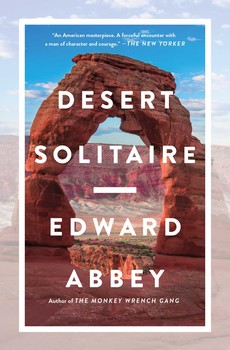 My favorite sand read is probably Edward Abbey's classic Desert Solitaire (Touchstone), in which he observes: "But we're getting accustomed to sand--sand in our food and drink, in our teeth and eyes, and whiskers, in our bedrolls and underwear. Sand becomes a part of our existence, which like breathing, we take for granted." --Robert Gray, contributing editor
My favorite sand read is probably Edward Abbey's classic Desert Solitaire (Touchstone), in which he observes: "But we're getting accustomed to sand--sand in our food and drink, in our teeth and eyes, and whiskers, in our bedrolls and underwear. Sand becomes a part of our existence, which like breathing, we take for granted." --Robert Gray, contributing editor



 You quote Toni Morrison: "We die. That may be the meaning of life. But we do language. That may be the measure of our lives." You also cite Aristotle on the contemplative life, and Warren Buffet and Bill Gates on the value of time. Where do you find the most value, personally? Where do you see the value of "doing language," or of taking action, intersecting or diverging?
You quote Toni Morrison: "We die. That may be the meaning of life. But we do language. That may be the measure of our lives." You also cite Aristotle on the contemplative life, and Warren Buffet and Bill Gates on the value of time. Where do you find the most value, personally? Where do you see the value of "doing language," or of taking action, intersecting or diverging?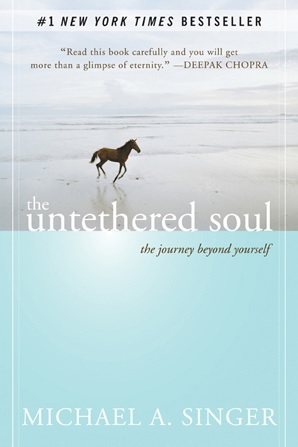 In 1971, while working on a doctorate in economics, author Michael A. Singer experienced a spiritual awakening that would change his life. In 1975, he founded a yoga and meditation center open to all religions and beliefs called the Temple of the Universe. He has since written a variety of books about spirituality, inner piece, personal potential and additional esoteric topics. Singer's most successful book is The Untethered Soul: The Journey Beyond Yourself, a New York Times bestseller first published by New Harbinger in 2007, which has been featured on Oprah Winfrey's Super Soul Sunday television and radio shows. He is also the author of The Search for Truth and Three Essays on Universal Law: Karma, Will and Love. Singer's most recent title is The Surrender Experiment: My Journey into Life's Perfection, published by Harmony in 2015, which is also a New York Times bestseller.
In 1971, while working on a doctorate in economics, author Michael A. Singer experienced a spiritual awakening that would change his life. In 1975, he founded a yoga and meditation center open to all religions and beliefs called the Temple of the Universe. He has since written a variety of books about spirituality, inner piece, personal potential and additional esoteric topics. Singer's most successful book is The Untethered Soul: The Journey Beyond Yourself, a New York Times bestseller first published by New Harbinger in 2007, which has been featured on Oprah Winfrey's Super Soul Sunday television and radio shows. He is also the author of The Search for Truth and Three Essays on Universal Law: Karma, Will and Love. Singer's most recent title is The Surrender Experiment: My Journey into Life's Perfection, published by Harmony in 2015, which is also a New York Times bestseller.